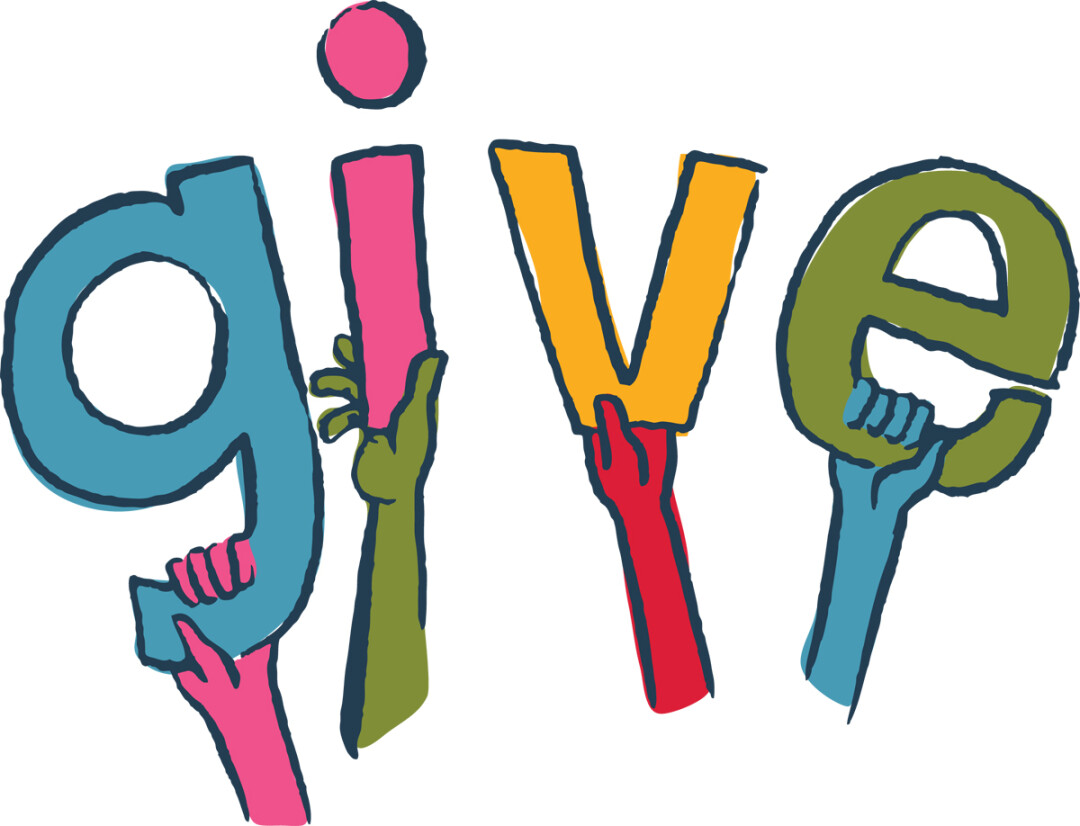How to Raise a Giving Child
acts of generosity can start small, have big impact
Rebecca Baader, Suzanne Becker, illustrated by Serena Wagner |

Kids these days ...It’s a phrase that often precedes statements that conjure images of a selfish, me-centered generation. Too often, negative stories take the spotlight and values such as generosity and empathy – or the idea of giving back – are lost in the shuffle of life.
A recent Harvard University study, “The Children We Mean to Raise,” revealed the majority of children in the U.S. value personal success over concern for others. They believe that important adult figures in their lives, such as parents and teachers, value them becoming personally successful over showing compassion for friends and neighbors.
When checking on homework, cheering for sports teams, or practicing lines for the school play, it’s easy to focus on a child’s personal success. This isn’t wrong. Personal success is important in the development of a child. But can we weave compassion and generosity into the difficult, often delicate, challenge of raising our kids? Can we raise strong, confident children without cultivating attitudes of self-entitlement and selfishness?
The answer is yes! Children and youth are looking to us as parents, grandparents, teachers, and friends to show them the way. Starting small in our families and our homes can have a tremendous impact today, tomorrow, and for years to come.
Many think giving back means large gestures or big monetary donations. What we fail to remember is that the everyday efforts of ordinary people can make an incredible difference to those around us. Giving back can mean something as simple as sharing a toy with another child, offering a smile when someone is lonely, or holding the door for an elderly person. Starting small can later grow into more diverse ways of giving as children become teens and compassion and generosity become part of who they are.
Marge Lahiti, a mother of two and an active volunteer in the Chippewa Valley, has seen the impact that giving has had on her two daughters as they have grown. “It has helped them to learn about the need in the community and about the big picture of how that need is filled. We have been able to have conversations that have helped them to connect the dots and learn how their help can add to this bigger picture.”
Why not incorporate a tradition of giving into the daily life of your family. Here are some ideas:
Make it a family activity. We all have special outings or activities that we enjoy doing as a family. Why not add something new? Give to a family in need: food, clothes, or presents around the holidays. Help out an elderly neighbor with yard work or just stop by for a visit. The possibilities are endless. Incorporating giving into an activity done together is one way to show children that giving is a priority for your entire family.
Consider gifts of time. Doing volunteer projects together as a family can be fun as well as fulfilling. Find a place that is meaningful to everyone such as a food pantry, the humane society, or a retirement home. There are many ways that your family can help to make the community stronger. Let your kids help choose so they will feel invested in the experience.
Talk about giving. It is easy for giving to get lost in the shuffle of life. Use giving moments large or small as teaching moments. Ask questions like, “How did giving make you feel? How do you think your giving made a difference in someone’s life?”
Lead by example. Model giving and kindness in your own life throughout the year. Talk with your children about the experiences you have, the need you see and the ways you are giving back to the community.
Josh Andersen, a father of three, wants his children to grow up being thankful for a caring family, a warm place to sleep and food to eat – basic needs that not all children have on a consistent basis. “We started with a goal of teaching our children to think of others,” Josh said. “Integrating giving and gratitude into our daily lives has made us all grow as individuals, Mom and Dad included.”
Share the gift of giving with the children in your life. Think how powerful the collective impact of many small acts of kindness will have on our community and on a generation that is too often stigmatized with negative labels. This special gift will become a part of who they are as they grow and develop into strong adults. And then, when you hear the phrase “Kids these days,” you can think, “Yes! Kids these days are awesome!”




















